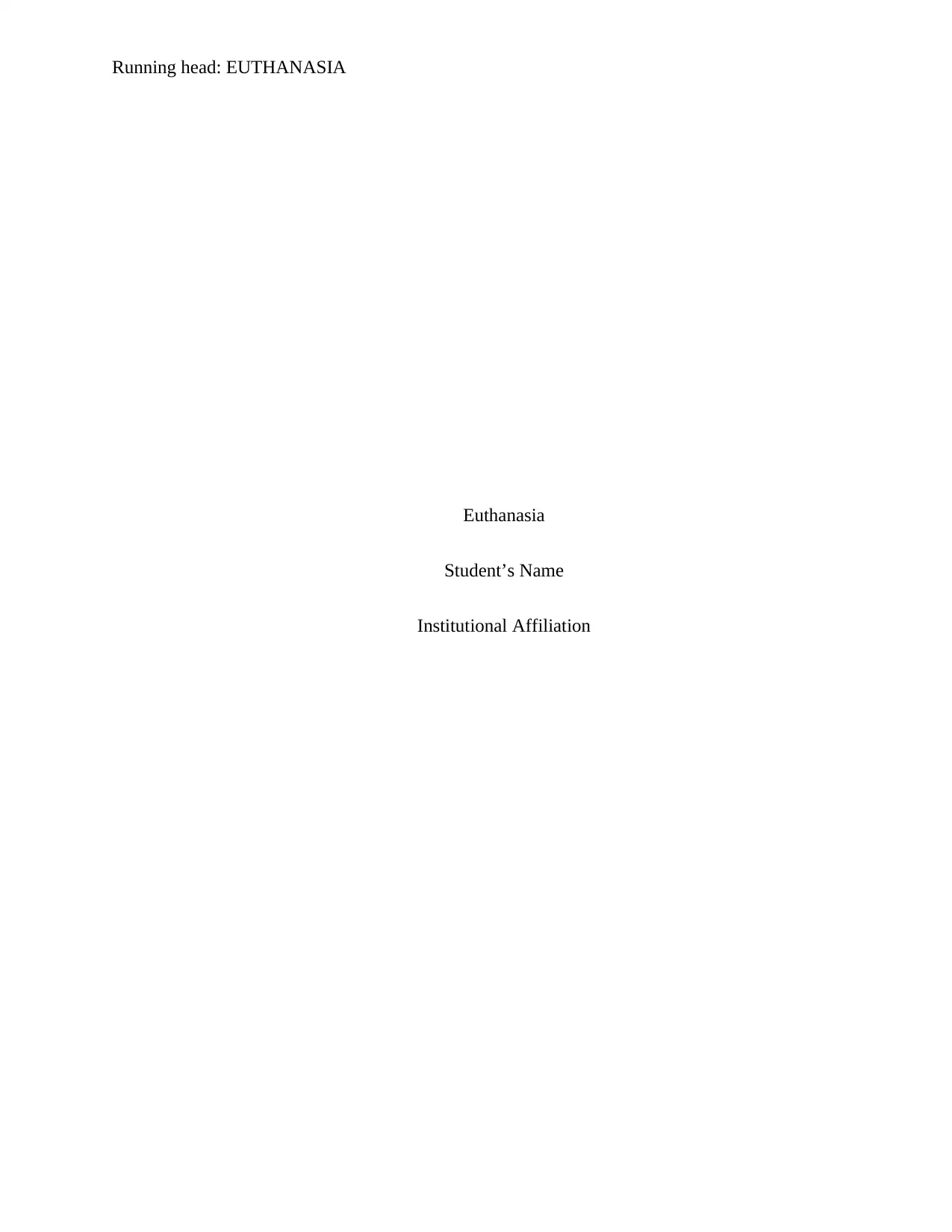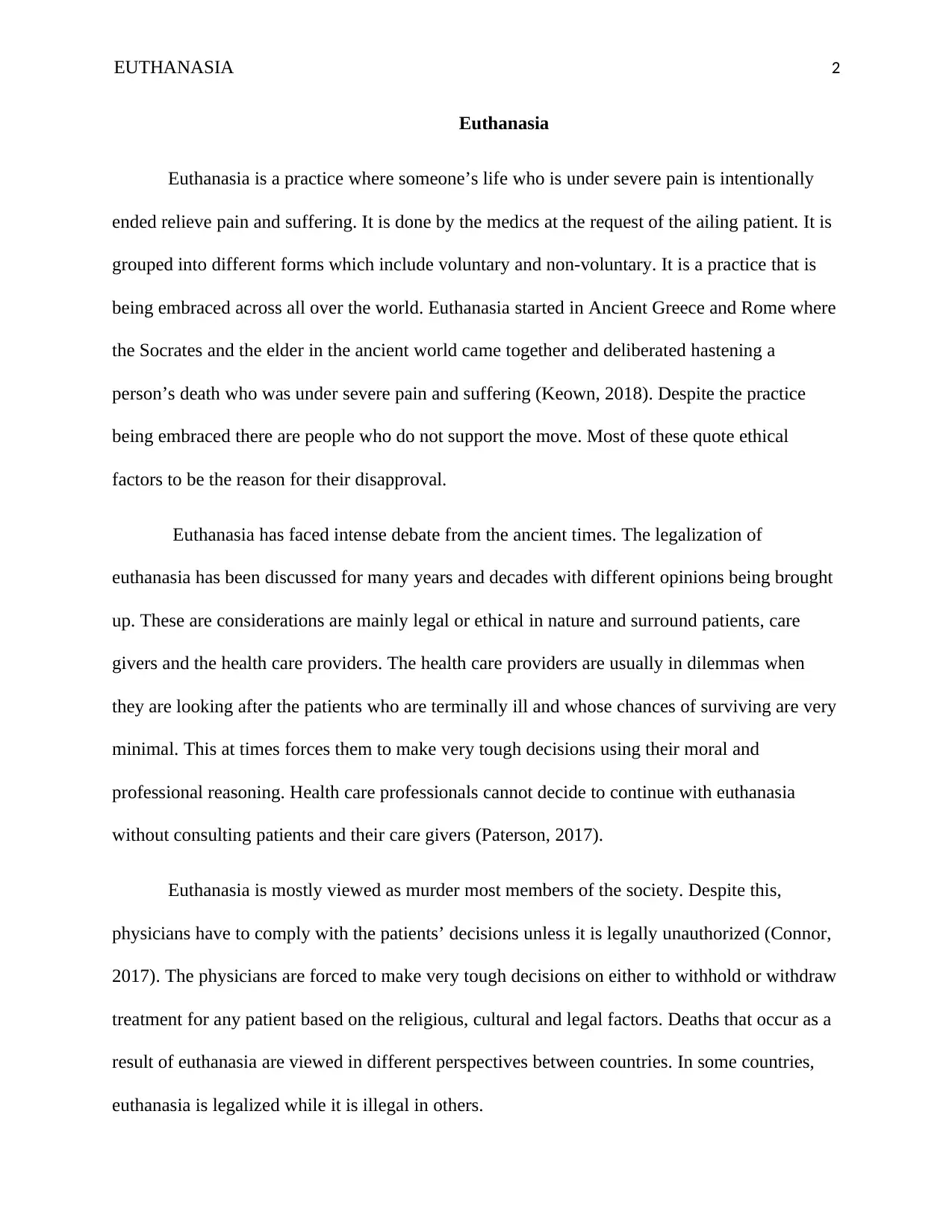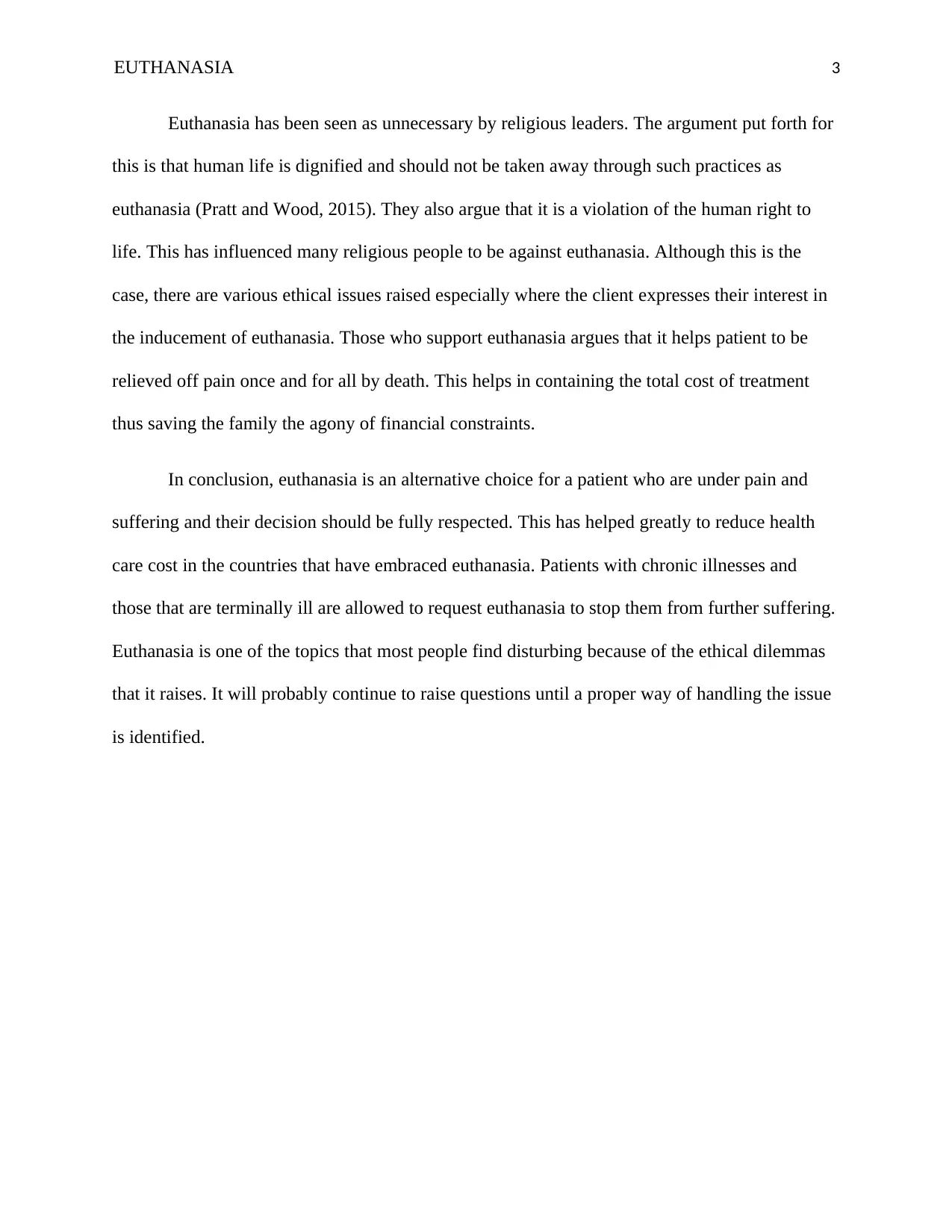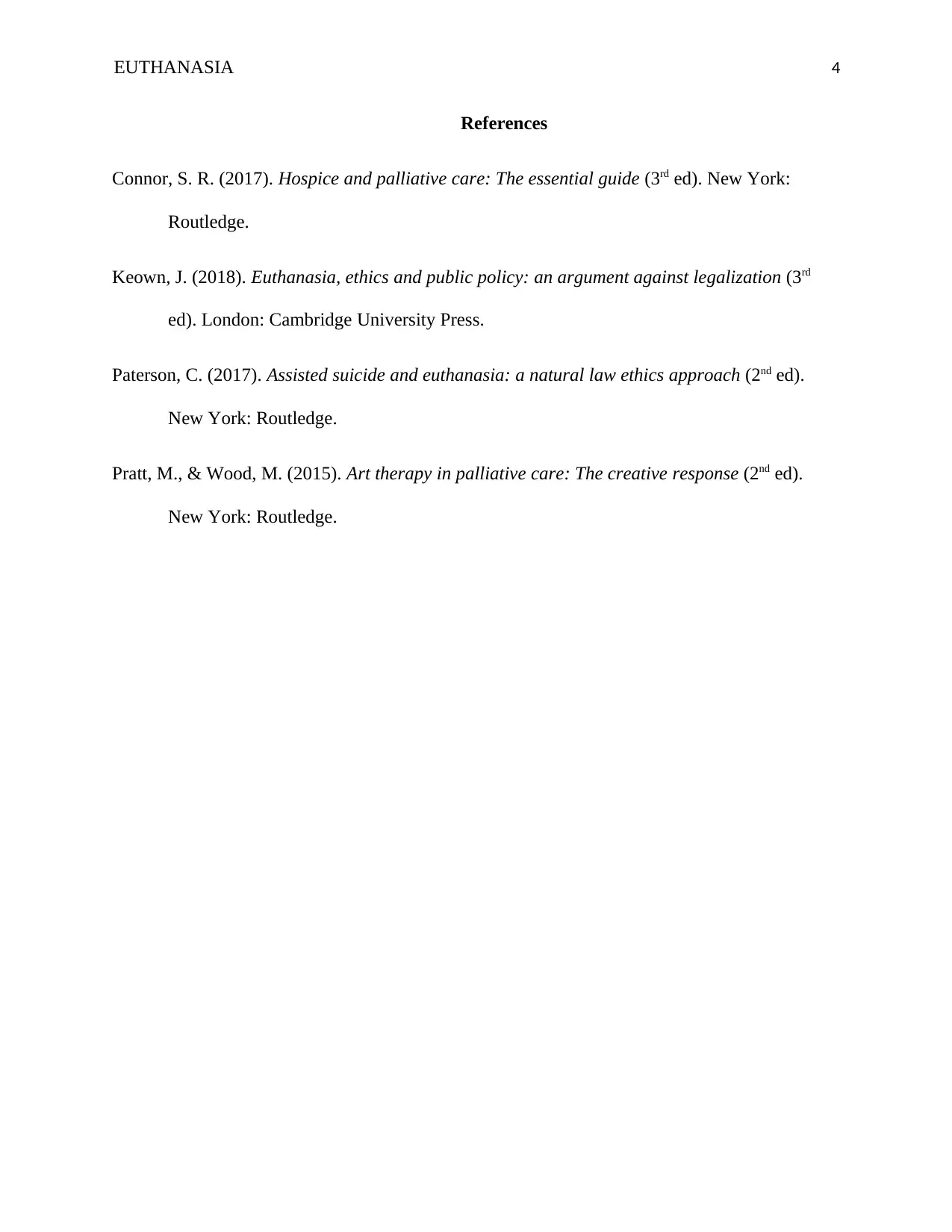Euthanasia: Ethical Implications and Societal Considerations Explored
VerifiedAdded on 2023/04/20
|5
|713
|114
Essay
AI Summary
This essay delves into the complex topic of euthanasia, exploring its definition, historical context, and the ethical debates surrounding its practice. It examines the perspectives of both proponents and opponents, highlighting the dilemmas faced by healthcare professionals, patients, and religious leaders. The essay further discusses the legal variations across countries and emphasizes the importance of respecting patient autonomy in end-of-life decisions. It concludes that euthanasia remains a contentious issue, prompting ongoing discussions about how to ethically manage end-of-life care and patient suffering, suggesting that further research is needed to find a proper way of handling the issue. Desklib provides this essay and many other resources for students.
1 out of 5












![[object Object]](/_next/static/media/star-bottom.7253800d.svg)